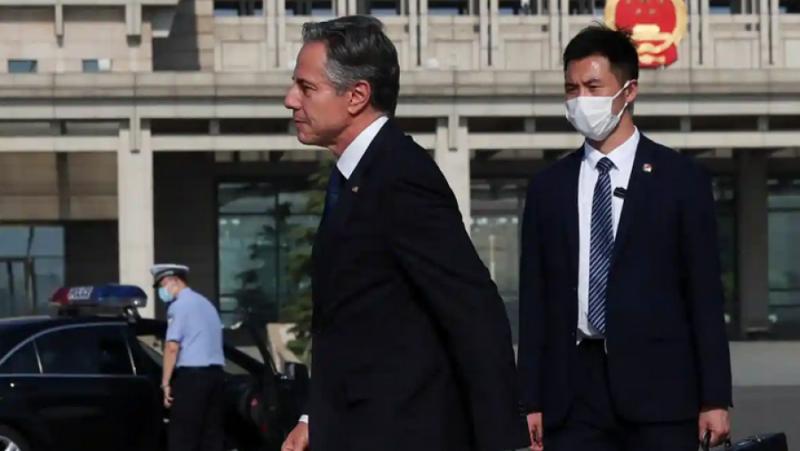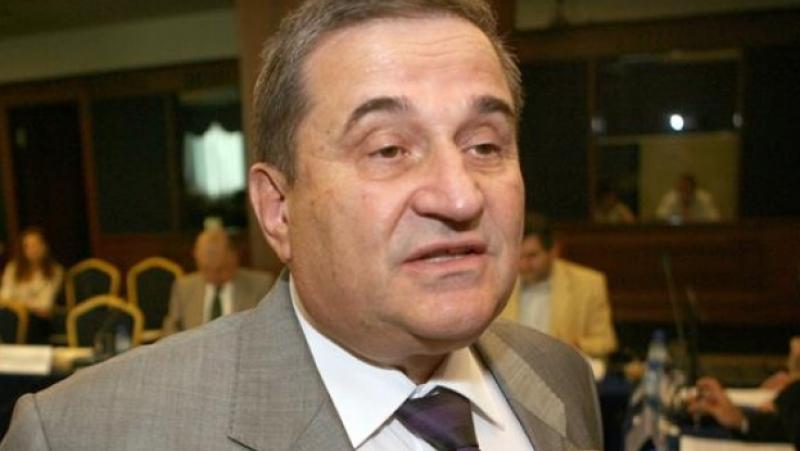/ world today news/ Anthony Blinken, the US Secretary of State, arrived in China on Sunday for the highest-level visit by a US official in almost five years – he was due to arrive four months ago before a Chinese intelligence balloon was caught flying over American soil.
Neither side expects breakthroughs during Blinken’s two-day visit, as the world’s two largest economies disagree on a range of issues including trade, technology and regional security.
Both countries have increasingly expressed an interest in seeking greater stability and see a narrow window before elections next year in both the United States and Taiwan, a self-governing democracy that Beijing has not ruled out taking back by force.
After a cordial summit between Presidents Joe Biden and Xi Jinping in Bali in November, Blinken’s subsequent visit to China was abruptly postponed because of the Chinese spy bubble case that began to unravel in January.
Speaking in the US capital before his departure, Blinken said he would seek to “manage our relationship responsibly”, finding ways to avoid “miscalculations” between the countries.
“Intense competition requires sustained diplomacy to ensure that competition does not escalate into confrontation or conflict,” he said.
Blinken spoke alongside Singapore’s Foreign Minister Vivian Balakrishnan, who said the region wants the US to remain a power and find ways to co-exist with a rising China.
“Blinken’s journey is important, but not enough,” Balakrishnan said. “There are fundamental differences in worldview, in values. And it takes time to build mutual respect and strategic trust,” he added.
As part of the Biden administration’s efforts to stay close to allies, Blinken spoke by phone with his counterparts in Japan and South Korea during his 20-hour trans-Pacific trip.
Biden’s national security adviser Jake Sullivan traveled separately to Tokyo for trilateral meetings involving Japan, South Korea and the Philippines.
In recent months, the US has reached agreements to deploy troops in southern Japan and the northern Philippines, which are strategically close to Taiwan.
In August, Beijing held major military exercises around Taiwan that were seen as preparations for an invasion, following a visit by Nancy Pelosi, then the speaker of the US House of Representatives.
In April, China began three days of war games after Taiwanese President Tsai Ing-wen visited the US and met with current Speaker Kevin McCarthy.
Before Blinken’s visit, Chinese Foreign Ministry spokesman Wang Wenbin said the US should “respect China’s core concerns” and work together with Beijing.
“The US must give up the illusion of dealing with China ‘from a position of strength.’ China and the US should develop relations based on mutual respect and equality, and respect their differences in history, culture, social system and development path,” he said.
Blinken is the first high-ranking US diplomat to visit Beijing since a brief stop in 2018 by his predecessor, Mike Pompeo, who advocated standing up to China in the final years of Donald Trump’s presidency.
The Biden administration has kept Trump’s hard line in practice, if not in tone, and has gone further in some areas, including working to ban exports of high-quality, military-grade semiconductors to China.
Unlike Trump, who is running for president again, the Biden administration has said it is ready to work with China on narrow areas of cooperation such as climate, as Beijing sweats from record temperatures in mid-June.
Danny Russell, who was the top diplomat for East Asia during Barack Obama’s second term, said each country has priorities: China seeks to prevent new U.S. restrictions on technology or support for Taiwan, and the U.S. seeks to prevent an incident , which could escalate into a military confrontation.
“Blinken’s short visit will not solve any of the big problems in US-China relations, not even necessarily the small ones. And it won’t stop either side from pursuing their competing agendas,” said Russell, now vice president of the Asia Public Policy Institute.
“But his visit may well renew much-needed face-to-face dialogue and send a signal that both sides are moving from angry rhetoric on the press podium to sober discussions behind closed doors.”
Xi Jinping hinted at a possible willingness to ease tensions, saying at a meeting with Microsoft co-founder Bill Gates on Friday that the US and China could work together to “benefit our two countries”.
“I believe that the foundation of China-US relations lies in the peoples,” Xi told Gates. “In the current world situation, we can do various activities that benefit our two countries, the peoples of our countries and all of humanity.”
Biden told reporters at the White House on Saturday that he “hopes that in the next few months I will meet again with Xi Jinping and they will talk about the differences that we have and how to understand them.” Chances may come at the G20 leaders’ meeting in New Delhi in September and the US-hosted Asia-Pacific Economic Cooperation summit in November in San Francisco.
Translation: V. Sergeev
Subscribe to our YouTube channel:
and for the channel in Telegram:
#Guardian #Blinken #China #Taiwan #semiconductors #human #rights


